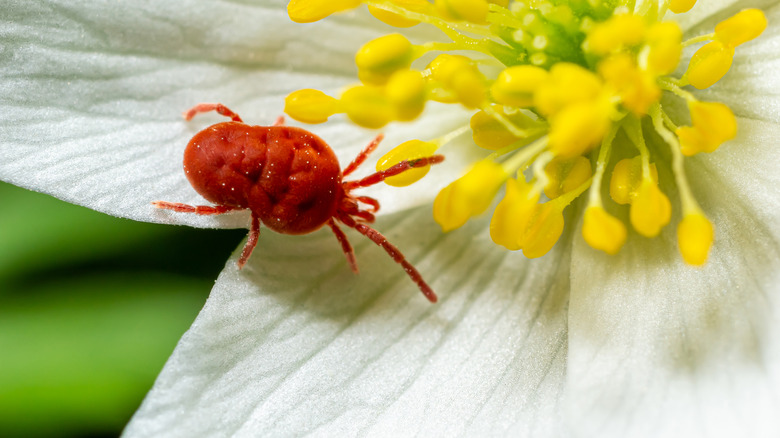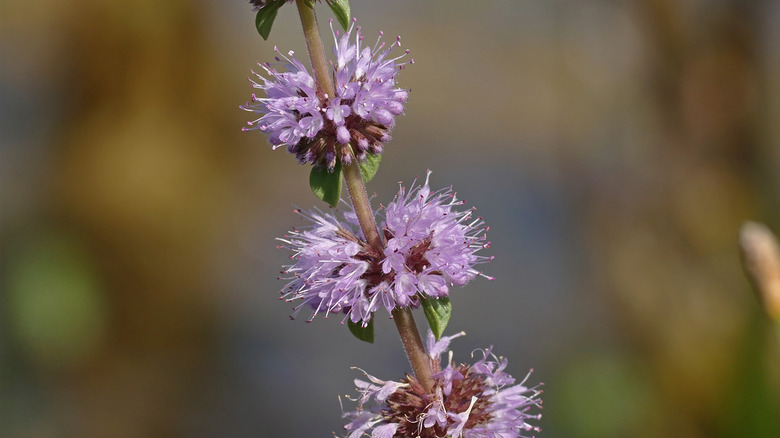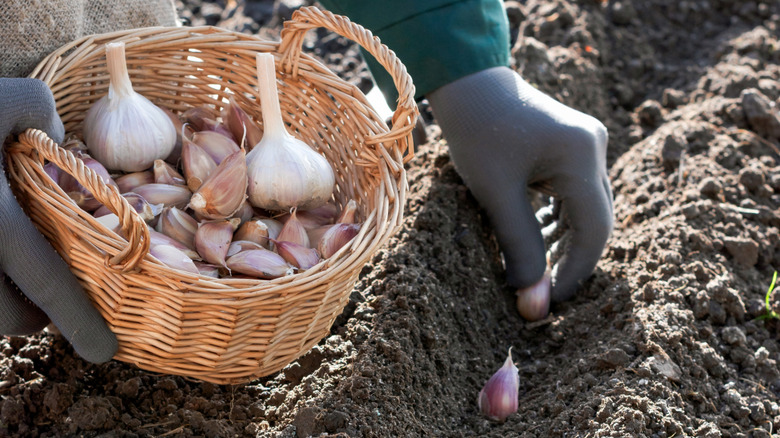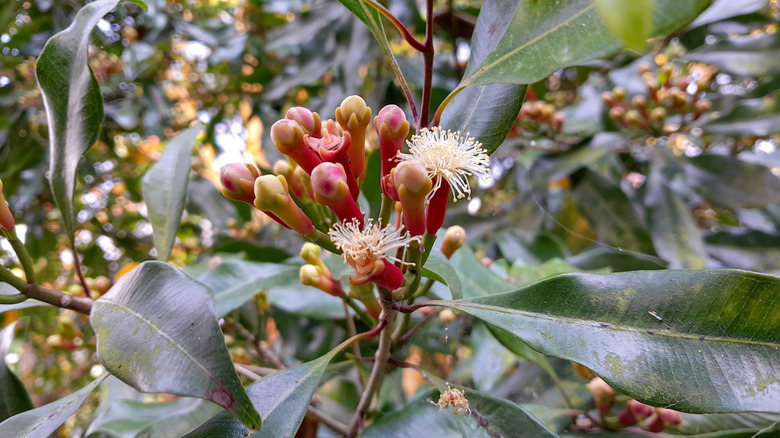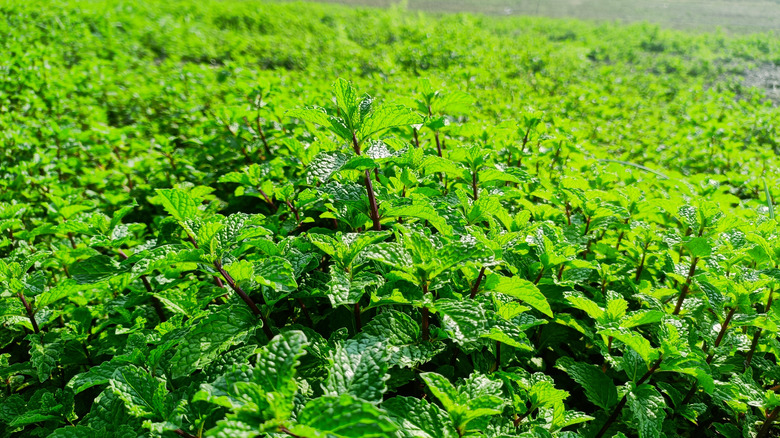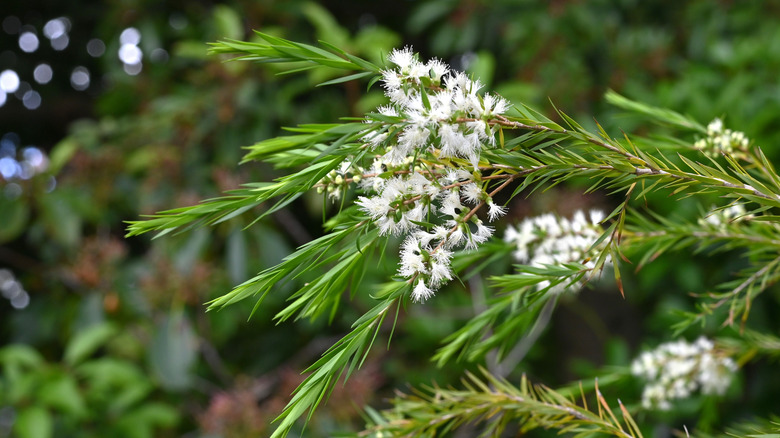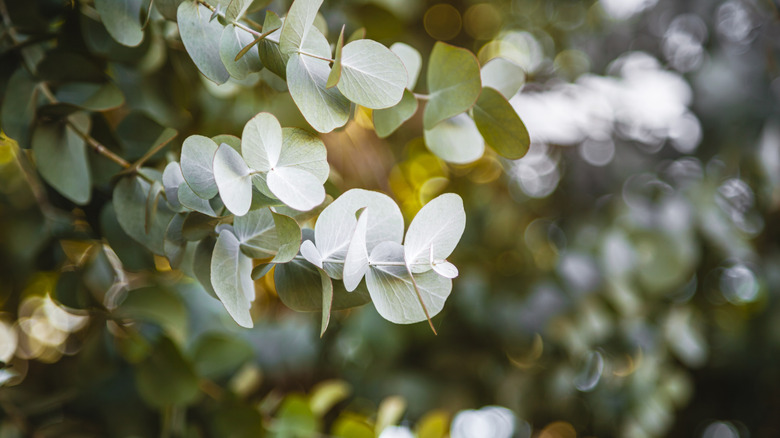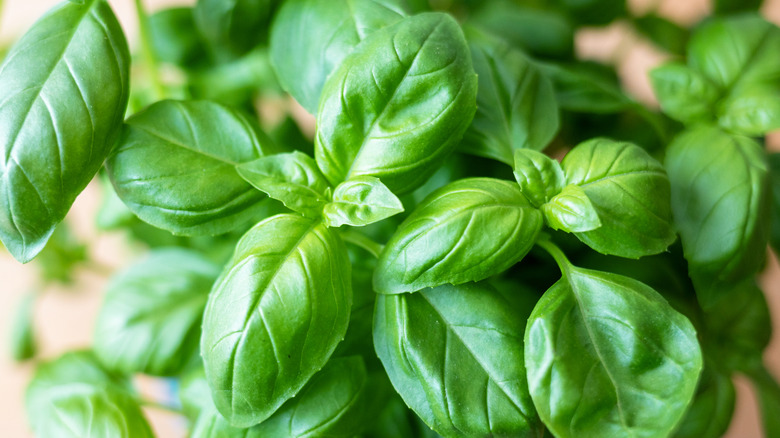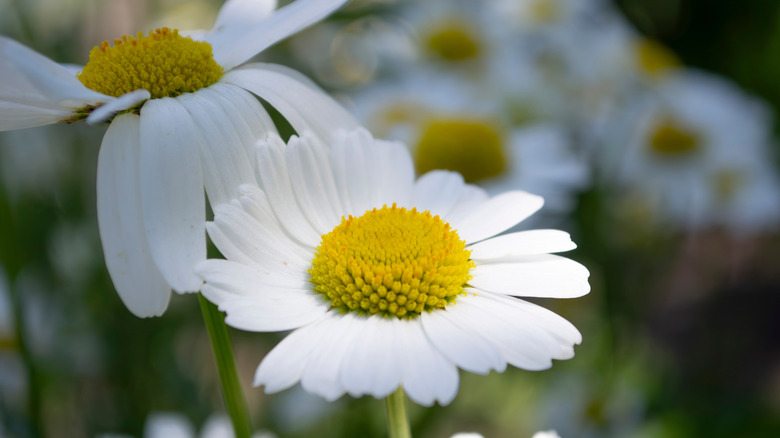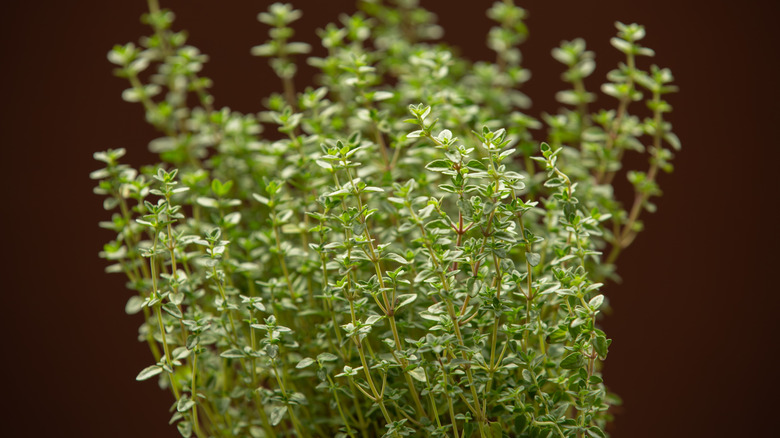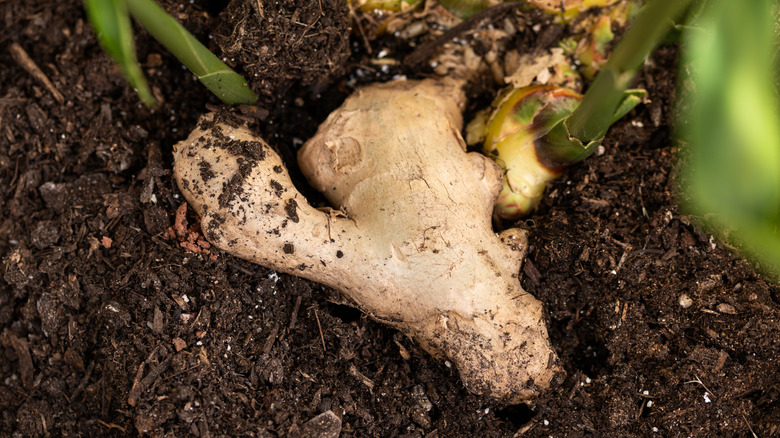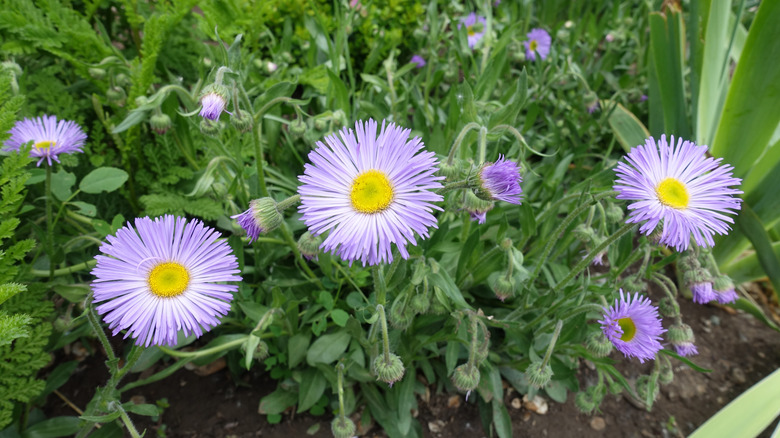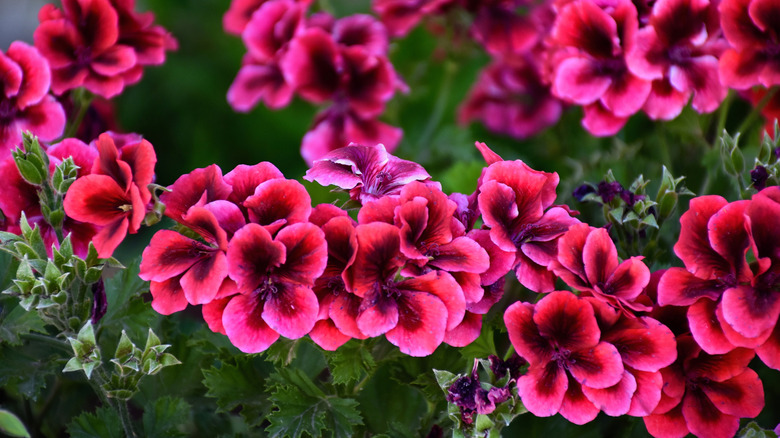Drive Chiggers Out Of Your Yard With 12 Plants That Will Keep Them Away Naturally
After spending a hard day at work in the garden, the last thing you want is to be scratching chigger bites on your ankles for days afterward. The worst part about these little lawn bugs that bite is that you often don't even know they're there, since the microscopic guys reach lengths of just .006 to .017 inches! You can help fight these pests in the yard by planting 14 flowers and herbs they hate.
You might not know this, but chiggers are not actually insects at all, but really mites. Insects have three body parts (head, thorax, and abdomen), while mites only have two parts, a head and abdomen. Insects sometimes have wings, but mites don't, and mites are more closely related to spiders and ticks, rather than ants. Chiggers are usually orange or yellow or beige, but it's only the immature larva that usually bite us. They don't suck our blood, either, but do something worse. Chiggers inject a kind of poison into the skin, which melts surface skin cells into liquid form. Then, they suck them up like the grossest protein shake of all time. No wonder their bites leave itchy red patches behind.
Know that the best way to repel chiggers might be with chemicals like DEET. Still, if you want to avoid chemicals and would rather embrace a more organic option, then try planting herbs and flowers that chiggers hate. We've gathered 14 of the best plants to help keep chiggers off your lawn.
Native Americans used pennyroyal to repel pests
Pennyroyal was the go-to pest repellent for some Native Americans and may help with chiggers, too. It thrives in USDA Plant Hardiness Zones 6 through 9. Pennyroyal (Mentha pulegium) is a herbaceous perennial know for its pom-pom-like purple flowers. It's a member of the mint family, Lamiaceae, and is so versatile that it does well in slightly acidic, neutral, or even alkaline soils. You might want to consider planting it in a container or pot, as in the right conditions it can spread quickly and squeeze out other flowers.
Garlic might repel chiggers
Chiggers hate strong smells, and while not scientifically proven, some swear by garlic as a means of keeping them out of the garden. Even eating garlic cloves might help you avoid chigger bites. In general, garlic has been thought to help repel pests of all kinds. Not to mention that it can be the popular garden vegetable you should grow for healthier soil. Garlic does well in zones 4 through 9, and needs full sun to really thrive. When half the leaves turn from green to brown, you'll know it's time to harvest.
Clove trees could keep chiggers moving
Chiggers hate clove oil, so growing a clove tree (Syzygium aromaticum) might not be a bad idea if you want to guard your yard from the pests. Even in small concentrations, clove oil can be an effective deterrent against chiggers. These trees are evergreens that grow slowly, but they can live up to 100 years or even longer in zones 11 and 12, so you could have protection for a long time. Clove trees get thirsty, though, and require almost continual watering, so if you do grow one, consider a drip irrigation system.
Peppermint won't pep up these pests
Chiggers don't much care for peppermint, either. There's no study about the plant itself repelling chiggers, but in concentrated oils, peppermint did help control dust mite populations – and dust mites are cousins of chiggers. If you grow your own mint, you could make your own essential oil, too. Peppermint will do well in zones 5 through 9. Give peppermint full sun if you can, but it will make do with partial shade. Otherwise, don't worry too much where you plant it. This herb isn't too picky about soil.
Try tea tree to keep chiggers away
Tea tree (Melaleuca alternifolia), the source of tea tree oil, might also be effective in repelling chiggers. While there's not a lot of research about how effective the plant is , there's some about concentrated tea oil that's promising. According to the Experimental and Applied Acarology journal, it effectively repelled chiggers in a lab setting. Native to warmer areas of Australia, tea tree prefers warmer winters, like in zones 9 through 11. This makes sense since it's a cousin of the myrtle tree, which rarely thrives in zones colder than 7.
Chiggers might avoid eucalyptus trees
Another relative of the myrtle, the eucalyptus tree, may also repel chiggers. Experts published a study in Experimental and Applied Acarology that found that eucalyptus gum was effective in repelling the mites. Eucalyptus, or gum trees, are evergreens native to Australia, and the primary food for koalas. They grow readily in California, but have come under fire recently for being fuel for some wildfires, so rethink growing there. Eucalyptus prefers warmer climates, and is hardy in zones 8 through 11. It tolerates a bit of dry weather.
We might love basil, but chiggers don't
Basil might not just be good for your recipes in the kitchen, it might also help you set up your first line of defense against chiggers. We might love the smell of fresh basil, but to chiggers, it smells like hot garbage. Basil oil might also help repel mosquitoes. Full sun or partial shade will do for the basil plant, as well moist, well-drained soil. You should plant germinated seedings or sprouts at least ten to twelve inches apart for best results.
Chamomile soothes chigger bites
Chamomile (Chamaemelum nobile) flowers may encourage chiggers to keep out of your garden. Even if they don't fully protect the yard, you can use flowers to help soothe any chigger bites. Chamomile helps reduce inflammation. Just brew a cup of chamomile tea, let it cool, and then soak your affected bites in it or soak a towel in the tea and apply the tea to your bites. This low-maintenance herbaceous perennial will grow well in zones 4 through 9. Just know that in the right conditions, chamomile can grow aggressively.
For fewer chiggers, it's time for thyme
Thyme might be the perfect seasoning for poultry, but chiggers do not think it smells good and would rather steer clear. They don't like concentrated thyme oil. If you grow thyme, you could make your own concentrated oil that you can mix with witch hazel and water to make your own organic repellent. Thyme can be grown in zones 5 to 9, and tolerates slightly acidic to slightly alkaline soil. Keep in mind, thyme does need at least six hours of sun a day to fully mature.
Ginger might keep the tiny mites away
Ginger essential oil might also help keep chiggers and other biting pests away. You can grow ginger plants easily in warm climates. It's hardy only down to zone 8, but in colder regions, you can always plant it in a container and move it indoors in the fall. We often refer to ginger root, but actually, that's not quite right — this plant has rhizomes or underground stems, not roots. Ginger loves heat and humidity, so if you're planting in cooler climates, make sure they get full sun.
Fleabane might be a bane of chiggers, too
Fleabane (Erigeron spp.) got its name because historically people thought the flower, dried or burned, had the power to repel fleas and other pests. While we don't have a lot of research to back up the claim, some still swear the dried flowers will help repels biting bugs. Fleabane can brighten up any garden with white, purple, pink or orange blooms. It's a versatile flower that will thrive in most types of soil, isn't too fussy about watering, and will grow well in zones 2 through 11.
Geraniums don't smell sweet to chiggers
We might like the fragrant smell of pretty geraniums, but chiggers might not care for it as much. While research on this topic is mixed, concentrated geranium oil seemed to repel chiggers about 50% of the time. These pretty colorful flower need lots of sunlight to grow. They're really annuals in most climates, but they could act as perennials in warmer zones 10 and 11. You can even make your own chigger repellent spray with a 1-to-10 concentration of geranium oil and rubbing alcohol.
